
2020-09-28
On September 27, the Financial Alliance International Forum themed as “New Direction of Finance under the Development Pattern of Domestic and International Dual Cycles”, sponsored by Shanghai Business School (SBS) jointly with RIYING Holdings Limited and the High-net Value Research Institute of Shanghai Jiaotong University Education Group, was successfully held. The forum was co-organized by the Academy for International Business Officials (AIBO) under MOFCOM (Shanghai), the School of Financial Innovation of Shanghai United University, and Baidu (Shanghai) Branch, and received special support from Yangtze River Delta Talent Cultivation, Exchange, and Guidance Service Center, the Alumni Industrial Finance Association of Donghua University, and People's Daily Digital Communication (Shanghai) Co., Ltd.
The forum was held in both offline and online forms. Nearly 1,000 representatives from a total of 90 institutions attended the forum at the scene, such as Forest Capital, Credit Suisse AG, Beijing BBEF Electronics Group Co., Ltd., and Fudan University. Some trainees of the foreign-aid training program of the Academy for International Business Officials (AIBO) under MOFCOM (Shanghai) also took part in the forum online, and interacted with representatives.
Guests present at the forum included Teshome Taffese Berlin, foreign-aid trainee and guest professor at SBS and State Minister of Finance of Ethiopia; Stephane Paul Limsombe Ouedraogo, foreign-aid trainee at SBS and Special Advisor to the President of Burkina Faso; Wei Zhe, Chairman and Founding Partner of Vision Knight Capital; Sun Lijian, Director of Financial Research Center, Fudan University; Jin Yanshi, CEO of PopEton Investment Consulting, Co., Ltd.; Feng Zhengming, Chairman of Hangzhou Beauty Fashion Network Technology Co., Ltd.; Sun Wei, General Manager of RIYING Holdings Limited, and so forth.
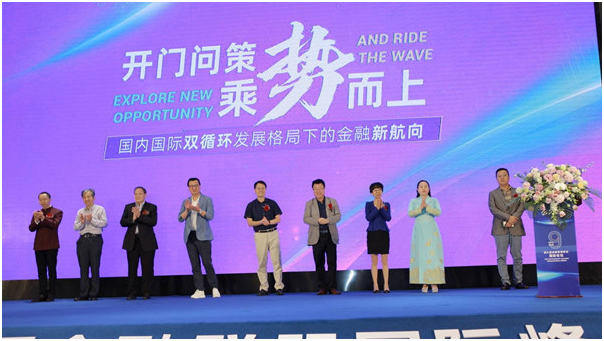
Opening speeches were presented by representatives of the sponsors, including Li Min, Chairman of RIYING Holdings Limited; Yang Zongjun, Dean of the High-net Value Research Institute of Shanghai Jiaotong University Education Group; He Ying, Vice President of SBS. According to Li Min, embracing the meeting of minds in the new era is an inevitable choice for every practitioner in the financial industry under the development pattern of domestic and international dual cycles. How to find a correct path of development in this new reform is a question posed by the era to all practitioners in the field. Yang Zongjun said that this forum, focusing on hot-spot issues related to global economic development pattern and financial industry development trends, presented high pertinent practical significance. In this context, establishing a new development pattern in which domestic and foreign cycles boost each other with the domestic cycle as the mainstay not only offers a solution for China in complicated global economic situations, but also represents a necessary choice in this unprecedented change since a century. He Ying welcomed and thanked our leaders, guests, and friends at the forum, saying that a seemingly challenging journey might create new market opportunities, and that the post-COVID-19 era, notwithstanding the difficulties and challenges, might create a huge development space. She emphasized that financial institutions should take regional coordinated development as a starting point, and further improve the suitability of their services, so as to better adapt to structural adjustments, gradually evolve into comprehensive fully-functional financial groups, and actively play bigger roles in the financial industry by deepening the supply-side reform. She expressed her wish that our guests and colleagues would speak out freely about the difficulties and pain points in the field, and join hands to create a high-quality and high-effectiveness forum, so as to further improve the ability of finance to serve the real economy and point out a broad long-term development path for the financial industry under the new pattern.
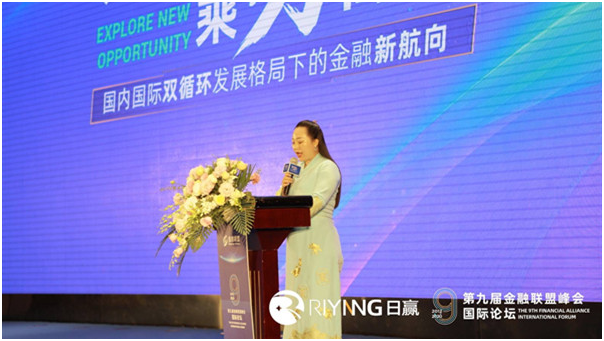
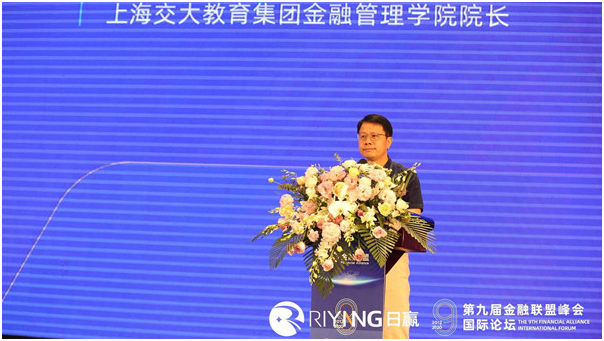
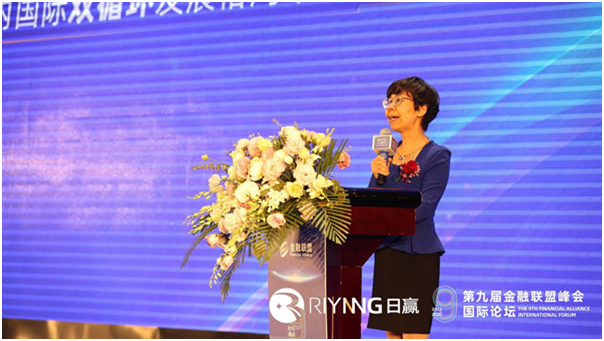
Stephane Paul Limsombe Ouedraogo said by video that the learning experience at the foreign-aid training base of SBS was valuable in many aspects, and that the 2019 Financial Strategy Seminar for Ministers from Developing Countries fully exhibited the professional quality of Chinese organizers, and made important contributions to the economic development of developing countries. According to him, in face of new opportunities emerging after COVID-19, the mode of development should be transformed to restore and strengthen the ability of our economy to withstand future impacts. To that end, he put forward three measures: accelerating the digitalization of economic and national services to turn digital economy into a driver of economic growth; accelerating the industrialization of agriculture, textiles, pharmaceuticals, and sanitation equipment; and making medical resources equally available to the people. Teshome Taffese Berlin said that, from Made in China 2025 to Digital Silk Road, China had explicitly specified the allocation modes and priorities of resources in its development plans. Currently, the new “domestic and international dual cycles” strategy is receiving close attention from the Chinese government and playing an important role for the Chinese government , and helping the government deal with geopolitical turmoil and international economic challenges.
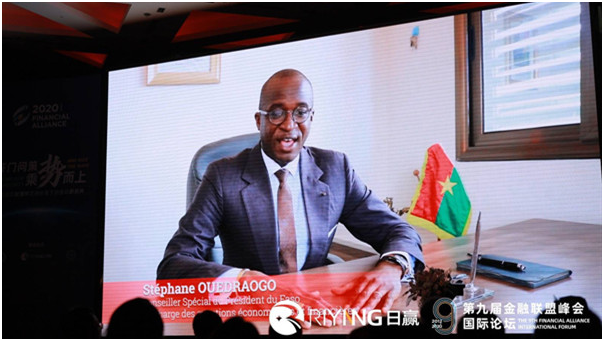
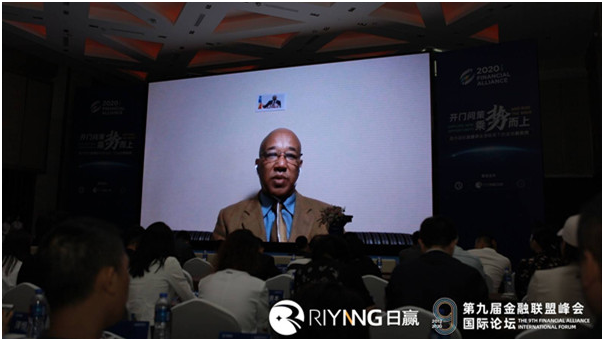
Wei Zhe, Sun Lijian, and Jin Yanshi gave keynote speeches. Wei Zhe presented a speech entitled “Investment Outlook under the Domestic Cycle”, in which he said that priorities should be given to promising and helpful industries with clear orientations in investment. He expressed his preferences to new consumption, industrial Internet, and hardcore technology industries, and shared his views on investing in new consumption industries. According to him, the most important factors of investment are “people”, “goods”, and “fields”, and future investment should stress “fun” and “self-pleasing”, instead of purely focusing on “use” and “pleasing others”. In his speech entitled “Chinese Economy and Global Vision- High-quality Development and Dual-cycle Strategy”, Sun Lijian pointed out that China, relying on its huge demographic dividend and demand market, had experienced four decades of rapid development, but was now at a turning point in history. He added that, to solve a series of problems such as “Middle Income Trap”, “Structural Deleverage”, and “Thucydides's Trap”, we should develop high-quality development patterns, leverage the three major intangible assets of big data, high technology, and currency anchor, and give full play to its core competiveness as a great power. In his speech “China Macroeconomic Analysis- Domestic Economic Cycle and Asset-light Strategy, Jin Yanshi pointed out that monetization drives wealth growth, industrialization boosts national development, urbanization promotes real estate appreciation, and securitization accelerates industrial innovation. According to him, from the old “three wagons” (investment, export, and consumption) to the current “three plates” (big consumption, big science and technology, and big health), the stock market has become an important driver of domestic economic cycle, and the wealth password in the digital economy is to create values for users.
In the round-table forum link, He Ying, Jian Yanshi, Sun Lijian, Feng Zhengming, and Sun Wei engaged in discussions about international economic and financial situations: growth, uncertainties, opening-up, and cooperation, accelerating the optimization of the Yangtze River Delta value chain system, global views on investment under the “domestic cycle”, etc. They also exchanged views on the Sino-US trade conflicts; the future evolution of Sino-US game in the fields of finance, science & technology, and international cooperation; the coordinated development among emerging economies and developing countries; the leading role of the Yangtze River Delta in national industrial development; the ways in which the Yangtze River Delta can make breakthroughs in the reform, lead the reform of the financial industry, and support the real economy; and the crises and opportunities faced by the Yangtze River Delta in the global industrial chain in the post-COVID-19 era. Our foreign-aid trainees raised some questions to our guests regarding the measures to be taken by developing countries at present and in the future to reduce financial instability, promote food security, and maintain the agricultural value chain after the COVID-19.
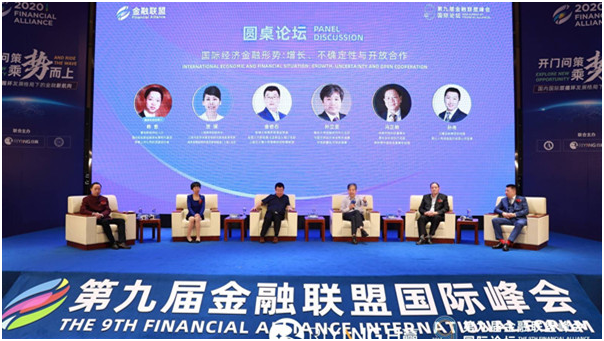
In the end, the Financial Alliance International Forum awarded licenses to co-chairman and honorary units, and SBS licensed RIYING Holdings Limited as a “Practical Teaching Base of the Academy for International Business Officials (AIBO) under MOFCOM (Shanghai)”. He Ying, Vice President of SBS, was elected as Co-chairman of the Financial Alliance International Forum, and SBS was elected as a honorary unit.
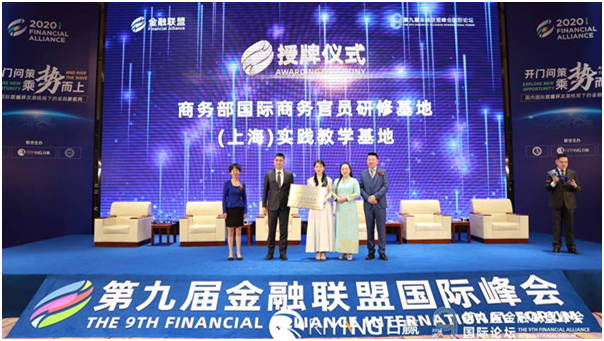
Before the forum, SBS Vice President He Ying received an interview by China Business News, in which she talked about the new missions and shortcomings of Shanghai under the development pattern of domestic and international dual cycles and in the background of integrated development in the Yangtze River Delta.
The forum was covered by many major media in China, including People's Daily Online, Xinhua News Agency, ChinaNet, ChinaNews, GMW, IFENG, Baidu News, Sohu News, NetEase News, Sina News, Toutiao, China Business News, HEXUN, Yidianzixun, China Economic Net, East Money Net, Huanqiu (Finance), and Xinmin Evening News (Community Edition • Economy and Life).
Writer: Zhou Dejiang
Photographer: RIYING Holdings Limited
Reviewer: Chen Wei
Executive Editor: Tang Xinhui
About Accommodation School Calendar Teachers Language and Character Website
Library Opening of the Party Affairs Opening of the School Affairs
Adress:No.6333, Oriental Beauty Valley Avenue, Fengxian District, Shanghai 201400, China
Tel:+86-21-64161789
CopyRights Reserved by Shanghai Business School